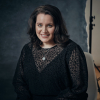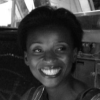
Virgin Media O2 launches summer online safety campaign
Virgin Media O2 and Internet Matters spotlight the importance of having conversations about online safety and starting them early

Finding time to switch off has perhaps never been simultaneously more difficult or more vital to both our mental health but also our own personal development.

When lockdown began earlier this year a narrative quickly developed that if you were lucky enough to be working from home, you would be afforded more time to do the things you wanted to do. By snatching back your commuting hours, you should be able to learn new skills, to relax more and to just take a bit of a breather.
Unfortunately, for many, the opposite has rather been the case. Research from LinkedIn in partnership with the Mental Health Foundation revealed that on average Britons are working 28 hours of overtime per month each since lockdown began, the equivalent of four extra days.
Rather than working from home, it almost now feels like we’re living at work. Finding time to switch off has perhaps never been simultaneously more difficult or more vital to both our mental health but also our own personal development.
And where better to find inspiration and support than in the pages of a book. Whether that’s a brilliant work of fiction, reshaping a story perhaps often told but never expressed from this perspective. Or a non-fictional deep dive into the world we live in, a tome of inspiration to carry you through the difficult days.
With this in mind we asked a selection of industry leaders what we should be adding to our summer reading lists this year, to help us tackle the issues that really matter.
Spurred on by an ever more vocal public, CSR has been reinvented as ‘Having a Purpose’.
Angela Freeth

It feels like, not that long ago, CSR was an after-thought to many businesses, more of a tick-box exercise than a key focus. Now however, spurred on by an ever more vocal public, CSR has been reinvented as ‘Having a Purpose’ and it seems that businesses are finally realising the importance of using their power for good.
In some cases, this may seem disingenuous, as brands rush to slap a rainbow filter over their content for Gay Pride week but do little to support the cause during the remaining 51 weeks of the year. Ultimately though, there have been plenty of remarkable initiatives tackling important issues like male suicide (Project 84 by CALM / Harry’s), workforce exploitation (The Body Shop) and period poverty (Hey Girls) to name a few, so overall I see this as an exciting and positive development in business.
The evolution of one of today’s most talked about causes, the Green movement, can be traced back to Howard Luck Gossage, an eccentric 60s adman and copywriter who, disillusioned with the burgeoning ad industry and ‘Mad Men’ of Madison Avenue, dedicated the latter part of his career to cause-related marketing. The World Is The Only Fit Work For A Grown Man is a biography about Gossage and its title is purportedly something he said around the time he ditched a number of high profile clients to focus on campaigns with a higher purpose.
The biography chronicles Gossage’s work launching Friends of the Earth, saving the Grand Canyon from controlled flooding, and freeing a Caribbean island. But what’s so interesting about this story is Gossage’s innovative approach to his campaigns, which were way ahead of their time. He sought to reinvent advertising and in doing so introduced interactive PR stunts, as well as one of the earliest forms of social media, way back in the 60s.
The book is a must-read for those who want to understand the birth of social media and cause-related marketing, while learning about the enigmatic, selfless character who helped shape them.
[The book] offers down-to-earth, useful advice for every woman needing to navigate what seemingly can feel like isolating and choppy waters.
Debbie Ellison

Slay in Your Lane, co-authored by Elizabeth Uviebinené and Yomi Adegoke, is essential reading for black British women inspired to find success in every area of their lives. The book provides an honest and pragmatic lens to a plethora of situations women might find themselves in and it’s comforting to know these experiences have been shared by some of the most successful women of all time. The book is full of insightful advice and anecdotes, from Sheryl Sandberg COO of Facebook, British Vogue publisher Vanessa Kingori and Olympic gold medallist Denise Lewis. Our very own WPP UK Country Manager, Karen Blackett features heavily.
I love that the book satisfyingly deconstructs the inequalities faced in education, at work and on the dating scene and that it offers down-to-earth, useful advice for every woman needing to navigate what seemingly can feel like isolating and choppy waters. It’s a great read and left me positively enriched. I suspect every reader will be motivated to reassess and manoeuvre themselves in order to triumph across all areas of work and personal life.
It's more relevant now that we make our voices heard, unmute, and let the camera capture the unpolished aspects of our lives.
Molly Prosser

In an open, frank, and often funny collection, Hollis debunks twenty common lies we tell ourselves that hold us back from meeting our goals and living joyfully.
Self-sabotage will get you nowhere. I'm an Olympic-level self-saboteur, as I think most ambitious, goal-oriented women are. We create these narratives about how we're not good enough, strong enough, smart enough to succeed, but they are all lies. Second chances and continuing to try will eventually get you where you want to be. This is a big one for me. I'm usually an ‘all-or-nothing’ person; if it doesn't happen the first time, I struggle to come back to it. And, like a lot of creative professionals, I lose motivation in the middle of big, hairy projects. I like the freshness and excitement of a new idea, a chance to be better, do better on something totally different instead of sticking it out with the old idea. Taking another stab at something or buckling down isn't failure, it's how we get ahead.
Vulnerability is at the core of our strength. By examining the hard stuff, the low moments in our life, those times when we wished we would have stood up for ourselves, said something, made a different decision, told someone, we can create a different narrative for ourselves. If we can face the challenging things in our life, call them out, and examine them, we can weave them into our lives as part of our success story.
We don't have to be smaller to be accepted. This was a great point to reflect on during lockdown as our ability to fill a physical space is limited to our Zoom window. It's easy and tempting to go on mute, turn off the camera, be ‘less’ apparent. But Hollis got me thinking about how the common feminist tips on how to take up more space and reclaim your time aren't as helpful in our current situation. It's more relevant now that we make our voices heard, unmute, and let the camera capture the unpolished aspects of our lives. That's how we can come out of this more powerful.
In a time where we are constantly staring at our laptops or on our phones, really listening to people is more vital than ever.
Pumie Msengana

Lockdown was set to be a time where I mastered many things. I set out to become a baking goddess, puzzle conqueror, DIY queen, Spanish fluent, all round superhero. What I had not factored in, was the back to back online meetings that hardly left any room to breathe; there was seemingly a constant need to be available. I soon realised that spending my time trying to juggle it all, learn new skills and support everyone else, meant I wasn't supporting myself, and was only exacerbating the pressure. This need to seem on top of everything meant that I didn’t allow any time for me to be honest with myself during this arduous time.
So, I packed up the 1,000-piece puzzles, put the paint tins away, and ordered Daring Greatly by Brené Brown. “This better not be a self-help book”, I grumbled to myself when it arrived. I was intrigued about the idea of vulnerability being a strength, and how looking at is as a weakness will actually stunt our own growth. As an account person, we’re taught to always be strong, organised and poised. But I’ve learnt that this belief for perfection can often create an unrealistic expectation upon yourself and those around you.
While I can’t promise that everyone will enjoy this book, I have seen how I’ve grown since reading it. How conversations that, at one point in my life, would have appeared confrontational, actually weren’t. How shame can erode people, teams and businesses. In a time where we are constantly staring at our laptops or on our phones, really listening to people is more vital than ever. We need to pay more attention to those around us, our clients, teams, friends and families. And most importantly, we need to keep in mind that we are all vulnerable, and it is ok for us to be vulnerable, because we can only succeed in life and work by having the courage to be honest with ourselves. The courage to be vulnerable.
Looks like you need to create a Creativebrief account to perform this action.
Create account Sign inLooks like you need to create a Creativebrief account to perform this action.
Create account Sign in